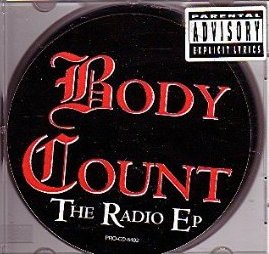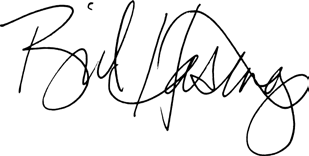| Indecent Publications Tribunal | |
|---|---|
| Established | 1 January 1964 |
| Dissolved | 26 August 1993 |
| Jurisdiction | Government of New Zealand |
| Composition method | Executive selection |
| Appeals to | High Court of New Zealand |
| Judge term length | 5 years |
| Number of positions | 5 |
| Type of tribunal | Commission of Inquiry |
The Indecent Publications Tribunal was a government censorship organisation that operated in New Zealand from 1964 until 1993. It was established under the Indecent Publications Act 1963 and consisted of five members, with one a High Court barrister or solicitor, and four other members with two having qualifications in the field of literature or education. [1] John Robson, a senior public servant, was instrumental in having provisions for the Tribunal to be established under the Act.
Decisions made by the Tribunal are still in force unless subsequently overturned after being re-classified. [2] The Office of Film and Literature Classification now serves a similar function.
In July 1992, the New Zealand Police Commissioner unsuccessfully attempted to prevent a concert by the American band Body Count in Auckland, arguing that "Anyone who comes to this country preaching in obscene terms the killing of police, should not be welcome here," [3] before taking Body Count and Warner Bros. Records to the Indecent Publications Tribunal, in an effort to get the song "Cop Killer" banned under New Zealand's Indecent Publications Act 1963. This was the first time in twenty years that a sound recording had come before the censorship body, and the first ever case involving popular music. [3] After reviewing the various submissions, and listening carefully to the album, the Tribunal found the song "Cop Killer" to be "not exhortatory," saw the album as displaying "an honest purpose," and found Body Count not indecent. [3]

Body Count is an American heavy metal band formed in Los Angeles in 1990. The group is fronted by Ice-T, who first established himself as a rapper but co-founded the group with lead guitarist Ernie C out of their interest in heavy metal music. Ice-T took on the role of vocalist and writing the lyrics for most of Body Count's songs, while Ernie C has been responsible for writing the group's music.
Although Australia is considered to have, in general, both freedom of speech and a free and independent media, certain subject-matter is subject to various forms of government censorship. These include matters of national security, judicial non-publication or suppression orders, defamation law, the federal Racial Discrimination Act 1975 (Cth), film and literature classification, and advertising restrictions.
Censorship in the United Kingdom has a history with various stringent and lax laws in place at different times.

The Office of Film and Literature Classification is an independent Crown entity established under Films, Videos, and Publications Classification Act 1993 responsible for censorship and classification of publications in New Zealand. A "publication" is defined broadly to be any thing that shows an image, representation, sign, statement, or word. This includes films, video games, books, magazines, CDs, T-shirts, street signs, jigsaw puzzles, drink cans, and slogans on campervans. The Chief Censor, David Shanks, is the chair of the OFLC.
In Ireland, the state retains laws that allow for censorship, including specific laws covering films, advertisements, newspapers and magazines, as well as terrorism and pornography. In the early years of the state, censorship was widely enforced, particularly in areas that were perceived to be in contradiction of Roman Catholic dogma, including abortion, sexuality and homosexuality. The church had banned many books and theories for centuries, listed in the Index Librorum Prohibitorum.

"Cop Killer" is a song composed by Ernie C with lyrics by Ice-T for American heavy metal band Body Count, of which they were both members. Released on Body Count's 1992 self-titled debut album, the song was written two years earlier, and was partially influenced by "Psycho Killer" by Talking Heads.

Body Count is the debut studio album by American heavy metal band Body Count, released on March 10, 1992, by Sire Records. The album's material focuses on various social and political issues ranging from police brutality to drug abuse. It also presents a turning point in the career of Ice-T, who co-wrote the album's songs with lead guitarist Ernie C and performed as the band's lead singer. Previously known only as a rapper, Ice-T's work with the band helped establish a crossover audience with rock music fans. The album produced the single "There Goes the Neighborhood".

William Kenneth Hastings was New Zealand's tenth Chief Censor. He held the position from October 1999 to July 2010. He was Chairperson of the Immigration and Protection Tribunal from July 2010 until February 2013, and is currently a District Court Judge. He was the chair of the Broadcasting Standards Authority from October 2018 until August 2021. He was sworn in as the tenth Judge of the Court Martial of New Zealand on 20 July 2021. On 9 August 2021, Hastings was sworn in as Chief Justice of the Republic of Kiribati.
The Society for Promotion of Community Standards Inc. ("SPCS") is a conservative lobby group in New Zealand. A registered charity and incorporated society, the Society has taken a strong pro-censorship stance and clashed many times with the Office of Film and Literature Classification. They have also advocated socially conservative positions on issues such as abortion, euthanasia and same-sex marriage.
Clothing laws vary considerably around the world. In most countries, there are no laws which prescribe what clothing is required to be worn. However, the community standards of clothing are set indirectly by way of prosecution of those who wear something that is not socially approved. Those people who wear insufficient clothing can be prosecuted in many countries under various offences termed indecent exposure, public indecency, nudity or other descriptions. Generally, these offences do not themselves define what is and what is not acceptable clothing to constitute the offence, and leave it to a judge to determine in each case.
The Censorship of Publications Board is an independent board established by the Censorship of Publications Act, 1929 to examine books and periodicals that are for sale in the Republic of Ireland. It is governed by the Censorship of Publications Acts of 1929, 1946 and 1967. The Board has the authority to prohibit any book or periodical that they find to be obscene. This makes it illegal to buy, sell or distribute that publication in the Republic of Ireland. The Board prohibited a large number of publications in the past, including books by respected authors. However, since the 1990s it does not prohibit publications very often.
Censorship in New Zealand has been present since around 1850 and is currently managed by the Office of Film and Literature Classification under the Films, Videos, and Publications Classification Act 1993.

The Films, Videos, and Publications Classification Act 1993 is an Act of Parliament in New Zealand.
Upsurge is a novel by Australian writer J. M. Harcourt. Set in Perth, Western Australia, during the Great Depression, it was the first novel to be banned by the then Commonwealth Book Censorship Board and the first to be prosecuted by police in Australia.
Censorship of music refers to the practice of editing of musical works for various reasons, stemming from a wide variety of motivations, including moral, political, or religious reasons. Censorship can range from the complete government-enforced legal prohibition of a musical work, to private, voluntary removal of content when a musical work appears in a certain context.
Book censorship was carried out in several instances in Ireland between 1929 and 1998, with all remaining bans from that period having expired by 2010. However, the laws remained on the statute books and a book was banned again in 2016. Censorship was enacted by a 1929 act of the Irish Free State.

The Indecent Publications Act was a New Zealand Act of Parliament enacted in 1963.

The Indecent Publications Act was an Act of Parliament passed in New Zealand in 1910 replacing earlier censorship legislation. The purpose was to "censor smut while protecting worthwhile material".

Into the River is a novel by Ted Dawe, featuring a coming-of-age story set in New Zealand, and intended for a young adult audience. It was awarded the Margaret Mahy Book of the Year prize and also won the top prize in the Young Adult Fiction category at the 2013 New Zealand Post Children's Book Awards. It was briefly banned from sale and supply in New Zealand.